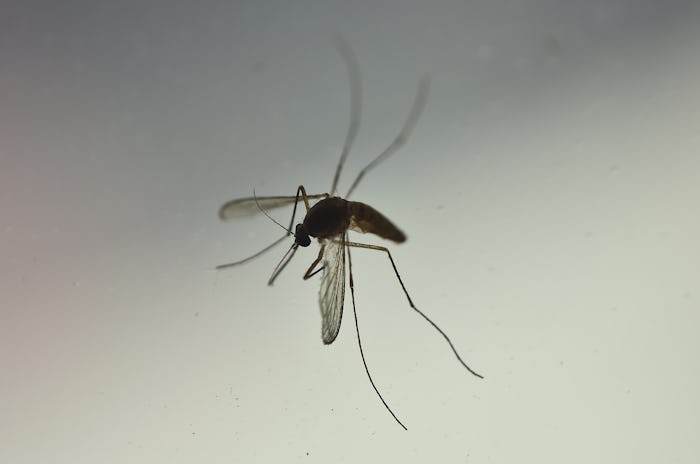Life

How To Protect Your Kids Against Zika If You Live In New York
July through September is peak "mosquito season" in New York City, and while mosquito bites are never fun, this year they could present more of a threat than mere annoyance: Zika virus. The mosquito-borne illness that's especially dangerous for the babies of pregnant women who contract it has recently entered the United States, and New York City has reported that 5 percent of its population is infected, according to The New York Daily News. Although Zika usually isn't especially dangerous for adults or young children, the situation surely has New Yorkers wondering how to protect kids against Zika.
The good news for Americans is that of the 756 Zika cases in this country reported to the Centers for Disease Control and Prevention as of June 15, all but one were travel-related, and the one outlier was acquired in a laboratory setting. That means that no one in the United States received a bite here that caused Zika. But the disease has grabbed headlines in the past year because of the severe birth defects — including abnormally small heads and brain damage — it causes in infants born with it in South and Central America, the Caribbean, the Pacific Islands, Mexico, Cape Verde, and elsewhere, too.
For most people, symptoms of a Zika infection can include a rash, red eyes, sore muscles and joints, and fever, and that's if they display symptoms at all, because many won't. As Zika season looms in the United States — and could affects kids in one of the nation's largest metropolises, New York City — precautionary measures can't hurt, especially because there is no vaccine to prevent the Zika virus or medicine to treat it.
The virus spreads only through a mosquito bite, from mother to baby in utero, or sexual contact. Because of this, the CDC has advised women who are pregnant or may become pregnant not to travel to affected countries, or to have sex with anyone who has recently done so.
But the CDC is planning for the virus to hit the United States and spread here via mosquitoes, so protecting kids from bites is the best way to make sure they're safe from the virus. The organization suggests dressing kids in clothing that covers their arms and legs and using mosquito netting to cover cribs, strollers, and baby carriers.
Insect repellent may seem like a godsend this summer as the weather warms and the mosquitos move in, but it's important to remember not to use it on babies younger than 2 months old. Also parents should be careful not to use a repellent with more than a 10 to 30 percent concentration of DEET on their kids, and not to apply it more than once within a 24-hour period.
Also, those lucky New Yorkers with yards, or really any outdoor space to call their own, should make sure to eliminate mosquito breeding conditions, which means standing water like pools, puddles, ponds, and bird baths. The state of New York has also formulated a six-step Zika action plan that aims to protect all residents through monitoring the vector mosquito, distributing "Zika protection kits" to low-income pregnant women, and more.
Right now, kids who haven't traveled to infected areas aren't especially at risk of contracting the Zika virus. That could change in the same way it would change for adults if the virus were detected in mosquitoes here. In that event, though, Zika is unlikely to cause lasting harm to either kids or adults. All families probably would prefer to avoid those symptoms, though, so bug spray could soon become many families' summertime best friend.